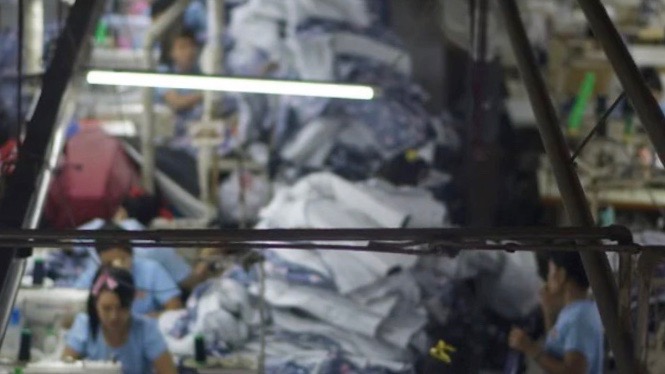More than 400 garment workers have been laid off at Fitex Myanmar’s factory in Yangon’s Hlaing Tharyar Township, which manufactures clothing for international womenswear brand Amisu. The mass termination comes just ahead of the Burmese annual Thingyan Festival.
“Now that the Thingyan holidays are very close, we can’t apply for work anywhere. No factory is hiring right now as they don’t want to pay us for time off for Thingyan,” a female worker, who was terminated on March 13, said to Myanmar Now.
“They should have notified us earlier if they had plans to shut down, so that we would have had time to find work at other factories,” one of the dismissed garment workers told Myanmar Now. Workers claim they were informed of their termination only verbally on March 13.
The International Labour Organisation reported last year that within a year of military rule, more than 1.6 million workers have lost their jobs across Myanmar. Besides mass terminations, companies have also been accused of cutting down on prescribed wages and forcing workers to operate under inhumane conditions. Under military rule, a large number of garment workers have faced immense pressure after they opposed the military takeover of the civilian government in 2021.
Several labor unions, as well as the Ethical Trading Initiative, have repeatedly urged brands and retailers to consider rehiring the rusticated workers.
On January 2, the Pou Chen factory in Myanmar that supplies goods to Adidas offered reinstatement to at least 26 dismissed workers. The workers were fired in October 2022 for protesting for higher wages in order to meet the rising cost of living. Of the 26, 17 workers rejected the factory’s offer for being blatantly “unfair and one-sided.”
According to the Federation of General Workers Myanmar, Fitex Myanmar had fired its staff en masse in 2022 as well. The terminated garment workers have called out the company for following a pattern of hiring workers following the annual holidays and subsequently mass firing them within a few months so that they can’t seek compensation or legal remedy.
This February, 2,200 workers were rendered jobless in a similar manner in Shwepyitha Township. Two factories producing clothing for Primark (a European retailer) in the Wartayar Industrial Zone abruptly announced that the sites would be shut down.
There has been widespread and systematic abuse of workers in the supply chain of international brands sourcing their goods from Myanmar. The Business and Human Rights Resource Center, in its report, documented at least 198 cases of alleged labor and human rights abuses perpetrated against at least 104,000 garment workers.





